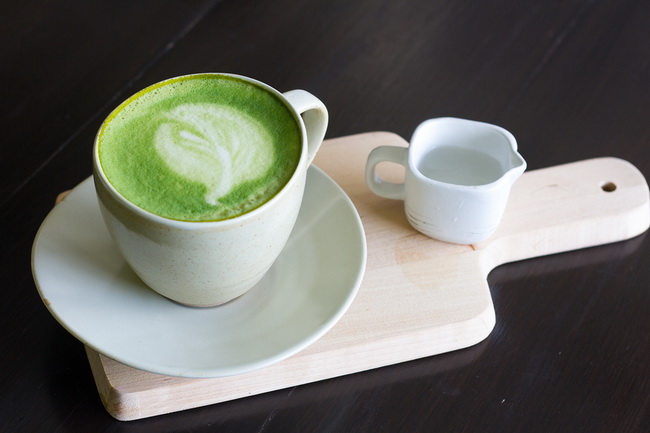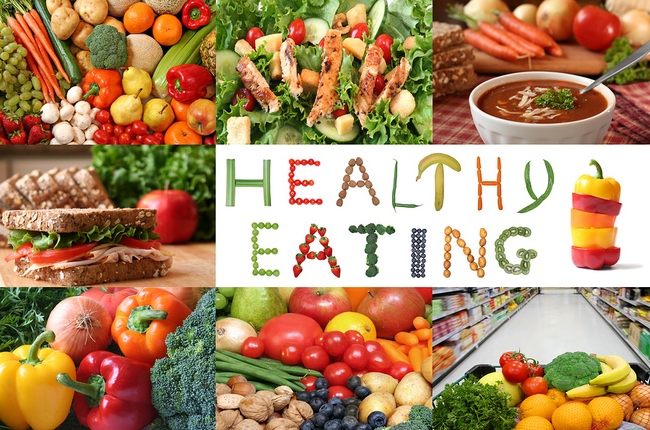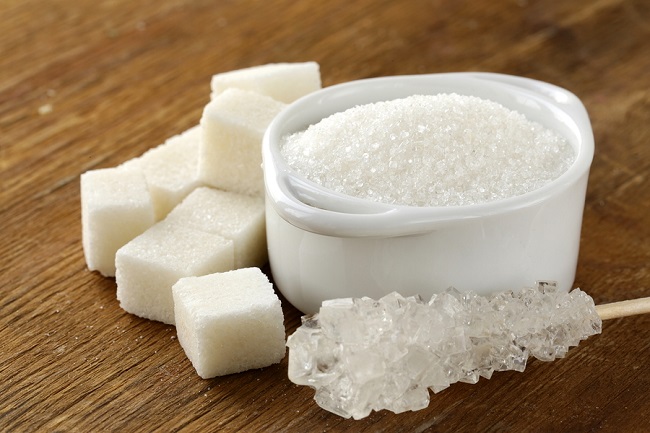- Make It Yourself Lavender Heart-Shaped Bath Bombs!
- 20 Things You Never Knew About “Down There”
- 12 Best Foods For Those Suffering From Arthritis Pain
- 12 Personal Hygiene Mistakes Almost Everyone Makes (Mom Never Told You About #4!)
- 15 Medicinal Plants And Herbs From The Cherokee People
- 12 Mind-Blowing Benefits Of Drinking Coconut Water During Pregnancy
- 12 Outstanding Winter Foods That Won’t Fatten You Up Like A Christmas Turkey
Arthritis: 10 Foods To Eat More Of And 5 To Avoid Like The Plague
If you or someone you love has arthritis, then you know about the pain caused by this terrible disease. Many diseases, arthritis included, are often caused by chronic inflammation in the body. Some foods tend to fuel inflammation while other foods calm it.
Although inflammation is a normal response from the body’s immune system, it sometimes gets out of control. A large part of our immune system is in our gut, so no one should be too surprised that when we don’t look after our diet and gut health, then our immune system gets out of whack and goes from helpful friend to annoying and painful foe.
Osteoarthritis used to be considered an age-related condition caused by overuse of the joints over time. However, new findings have discovered that low-grade inflammation in the body is the major underlying cause of joint degeneration. Rheumatoid arthritis is considered to be an autoimmune disease that can develop at any age. Both are fueled by inflammation.
There are numerous drugs to treat rheumatoid arthritis, but those drugs are filled with dangerous toxic chemicals. Why subject yourself to those side effects when you can use natural, simple means of reducing pain, such as through diet modification?
Although some people have food allergies and sensitivities, the following list has been reported and confirmed by the Mayo Clinic to be either anti-inflammatory foods or foods that aggravate arthritis symptoms.
Keep reading and find out which foods you should include in your diet to lower your levels of inflammation and which foods to avoid as they tend to cause a flare-up of arthritis symptoms.
Continue to Page 2

Photo credit: bigstock.com
Ten Foods that Fight Inflammation
1. Tea
Matcha green tea is the most nutrient-rich tea on the planet and comes in a stone ground, unfermented powder. The absolute best Matcha green tea comes from Japan. This green tea has as much as 17 times the antioxidants of blueberries and more than seven times the antioxidant power of dark chocolate. Tulsi, also called holy basil, is another tea that is loaded with micronutrients that support the immune system, and it is full of anti-inflammatory, antioxidant power. Try drinking two or more cups of either of these teas each day for a powerful anti-inflammatory punch your body will love.
2. Fish
Research shows that omega-3 fatty acids prevent inflammation. These vital omega-3 fatty acids can found in oily fish such as salmon, halibut, and anchovies. All fish contain omega-3s but oily, fatty fish have the highest concentration. Unfortunately for vegans, plant sources of omega 3 are simply not as good. The body does not convert the ALA in plants get sufficient amounts of this necessary and healthy essential fatty acid. Take supplements or try eating at least three ounces of fatty fish (or any fish) at least three times each week.
3. Garlic
This herb has been used for its medicinal purposes for centuries. It has also been one of the most heavily researched herbs in the world. More than 170 studies show that garlic can help the body on more than 150 different levels. Garlic kills free radicals and is highly anti-inflammatory. It is best consumed raw and slightly crushed, but if you can’t stomach that, add it to your diet any way that you can. You will still get some of the benefits.
4. Extra Virgin Olive Oil
Olive oil is a huge part of the healthy Mediterranean diet, which has been linked to a reduction in rheumatoid arthritis symptoms. A compound found in olive oil has been shown in studies to stop the production of chemicals that cause inflammation. Although olive oil is not well suited for cooking purposes, it is great as a salad dressing or dip.
5. Fermented Vegetables
Optimizing your gut flora is the best way to fight inflammation. When your gut is healthy and balanced, it gives you a properly functioning immune system, which will ward off chronic inflammation. Try to eat as many fermented foods as you can, including pickles, sauerkraut, kefir, kimchee, olives, and miso.
Continue to Page 3

Photo credit: bigstock.com
6. Fruits and Vegetables
Perhaps one of the best ways to reduce inflammation is to eat lots of foods with plenty of antioxidants, which kill free radicals. Fruits and veggies that are bright in color get those rainbow hues from flavonoids and carotenoids, which are potent antioxidants. Some of the produce that have the highest antioxidant levels are:
7. Turmeric
The active ingredient in turmeric is curcumin, which has proven health benefits for just about everyone. This spice has been used for hundreds of years in both traditional Chinese medicine and Ayurvedic medicine for the symptoms of arthritis. Turmeric is a powerful antioxidant, anti-inflammatory, and antiseptic compound. Turmeric can reduce joint pain and arthritis pain by reducing inflammation.
8. Vitamin C
This is another well-known antioxidant that is vital to the immune system. Consuming plenty of (but not too much) vitamin C has been shown in studies to reduce the risk of developing RA by at least 30 percent. Some of the best sources of natural vitamin C are:
- Berries
- Oranges
- Bell Peppers
- Mangos
- Kiwi fruit
- Broccoli
- Lemons
- Limes
- Grapefruit
Try to get your vitamin C through a healthy diet as high doses of vitamin C supplements have been shown to cause arthritis flare-ups.
SEE ALSO: Best 15 Herbs to Beat Arthritis
9. Ginger
Studies have shown that ginger root reduces inflammation, something many cultures have known for years. Adding some fresh ginger root to your cooking or drinking several cups of ginger tea each day has been shown to greatly reduce the pain and inflammation caused by arthritis.
10. Whole Grains
The American Journal of Clinical Nutrition states that whole grains can reduce inflammatory markers and prevent arthritis flare-ups. Whole grains such as oatmeal, brown rice, barley, and whole wheat pasta and breads can help you avoid painful flare-ups, as well as help maintain a healthy weight, which is important for taking the stress off joints.
Continue to Page 4

Photo credit: bigstock.com
Five Foods You Should Avoid if You Have Arthritis
1. Sugar
Sugars increase blood sugar levels, increase blood pressure, and do nothing for the body except give you empty calories. Sugar, especially refined sugar such as high fructose corn syrup, has been shown to have a dramatic impact on inflammation as well as your overall health.
2. Coffee and Caffeinated Drinks
Coffee is big business in the U.S. More than 150 million people say that they drink more than three cups of coffee each day. Although it’s true that coffee has health benefits, for those with arthritis, coffee should be a big no-no. The same goes for other caffeinated drinks such as sodas. (Green tea is ok!) To avoid flare-ups, avoid caffeine.
3. Salt
Americans consume far too much salt, which increases blood pressure and is a risk factor for many other diseases. Skip the salt shaker and add herbs for more flavor.
4. Dairy and Red Meat
There is nothing wrong with dairy and red meat per se, but studies have shown that excessive consumption of either is strongly linked to an inflammatory reaction in the body, especially with processed dairy. Limit these two food items to prevent flare-ups. If you love dairy, try almond or rice milk as an anti-inflammatory alternative.
5. Saturated and Trans-Fats
These types of super unhealthy fats are most commonly found in processed foods and cooking oils. Eating a more natural diet with plenty of fresh fruits and vegetables along with healthy fats such as avocados and coconut oil can go a long way towards reducing inflammation in the body.
It’s important for anyone with arthritis to take a good hard look at their diet and realize that certain dietary components can either prevent a flare-up or trigger inflammation and pain. The choice is entirely yours.
References:



































Marvin Zinn
Feb 5, 2018 at 9:10 am
This description defines why my arthritis has been barely noticeable for 30 years. I eat just what is described, and do not eat junk. (I often tell people, “The most dangerous addictive drug in the world is SUGAR.”